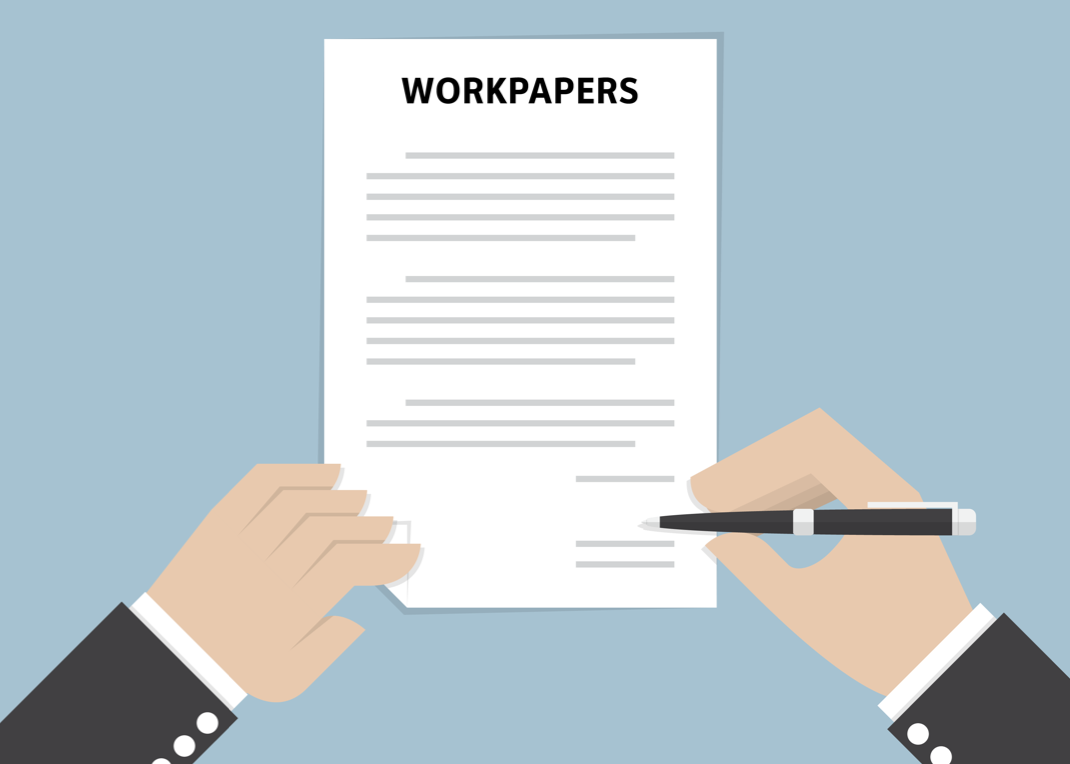By Wiss Employee
Numbers don’t lie, but they also don’t talk. Instead, clearly documented words in a work paper speak for the numbers, and in the case of audit documentation, this is how an auditor proves to others — including, perhaps, a court of law — that an audit was thoroughly and effectively executed.
Despite the critical nature of this task, auditors often question whether the effort it takes to provide sufficient documentation is worth the end result. A competent auditor always believes the work papers he or she is preparing are prepared for the use of those who have no understanding of what is going on. In short, audit work papers must contain sufficient written documentation to enable another auditor, having no previous connection with the engagement, to understand the work that was performed and the conclusions reached. In fact, the American Institute of Certified Accountants Peer Review Program has found that the most common cause of material nonconformity in audits is lack of documentation.
There are several misconceptions that prevent auditors from properly putting words to the numbers. Here are some misconceptions audit teams needs to be aware of.
Misconception No. 1: “I don’t have to document what I did, because everybody knows about it.”
This is a common error of logic and one that directly conflicts with auditing standards. Unless you document in your own words what was done in your work, nobody exactly knows. Always document evidence obtained, including procedures performed and conclusions reached, in your work papers, because doing so supports the opinion rendered. Well-documented work papers improve quality of the audit and create assets for both present and future audits. New team members on recurring clients can utilize past documentation to improve the efficiency of future analyses.
Misconception No. 2: “If my work doesn’t make sense, the reviewer will find and fix it.”
The individual who performs the work is the owner of that work and must take personal responsibility for it. If it doesn’t make sense to the owner, it will not make sense to anybody else, so it is foolish to assume a reviewer will detect every single issue and document them if necessary. It is critical to explain and document the work in one’s own words in order to understand and connect the dots. More important, the risk of undetecting an error never becomes an issue.
Misconception No. 3: “Once I sign off on the work paper, the work is complete.”
Signing off on a work paper is nothing more than an acknowledgement of who performed the work. This thinking is similar to completing a flowchart, filling a checklist or signing off on an audit program. Auditors often believe rolling forward prior year work and signing off on it is all that is needed in the current year. Although prior year work papers are great resources, the risks of a company being audited often change year over year. Always review prior year work papers to see if those work make sense before using them in the current year. The core of the audit lies in identifying and acting on risks by referencing and documenting evidences obtained.
Misconception No. 4: “I don’t want to spend time on documentation because I want to help the budget.”
Quality of work should never be sacrificed for the sake of time. To improve audit efficiency, keep an open mind with regard to audit methodology, and allocate time effectively in order of priority. But don’t let the issue of time get in the way of sufficient audit evidence documentation, lest the reliability of the opinion become questionable. If picked up by the AICPA Peer Review Program, the audit could be branded as “materially nonconforming” engagement due to lack of adequate audit documentation.
Don’t fall victim to these misconceptions. The information contained in audit documentation in work papers, and audit files is the principal record of the work performed, conclusions reached and the opinion expressed. Without the words, the numbers sit oddly –and perhaps dangerously silent.
Zul Kareem is a Senior Audit Associate as Wiss & Company, LLP. He can be reached at [email protected] or 973.994.9400.

 Previous
Previous









